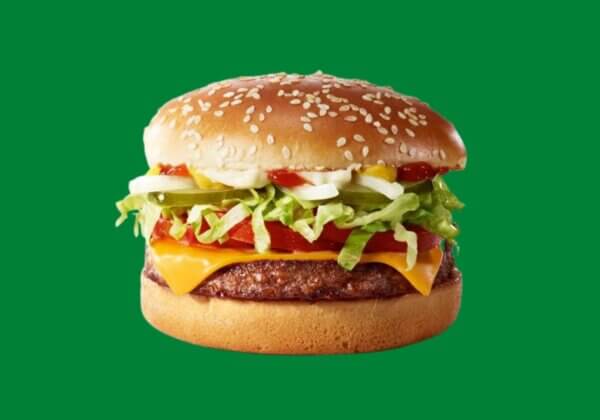World Osteoporosis Day: Do Dairy Foods Harm Your Bones?
We’re often told that dairy foods are important for building strong bones and preventing diseases such as osteoporosis. But numerous studies have, in fact, shown links between their consumption and osteoporosis – and many doctors now speak out against eating them.
Dr Michael Greger, MD – author of the bestselling book How Not to Die and founder of the non-profit website NutritionFacts.org – has talked at length about bone health and osteoporosis.
In this video, he discusses that hip fracture rates are highest in populations with the greatest milk consumption. He also examines other research suggesting that drinking milk may be harmful to our health – including a study conducted over 20 years and involving 100,000 people.
This study found not only that women who consumed two to three glasses of milk a day had a significantly higher risk of hip fracture but also that rates of cancer and heart disease were higher among these women.
Dr Christian Jessen, best known for starring in the TV show Embarrassing Bodies, wrote an article for London’s Evening Standard titled “Time to Stop Milking It“.
In this article, Dr Jessen mentions that “[e]xperts now say that after the first year of life, children require no milk of any type”. He also notes that the former director of paediatrics at the Johns Hopkins School of Medicine in the US estimates that half of all iron deficiency in American infants results from cows’ milk–induced intestinal bleeding. Furthermore, he explains that cows’ milk isn’t appropriate for meeting humans’ nutritional needs:
Cows’ milk is just that: for cows. Man is the only animal that drinks milk into adulthood. Cows’ milk is higher in sugar than humans need, and although high in calcium, only 30 per cent of it is available for use by the body, compared to 60–70 per cent for fruits, grains, nuts, roots, seeds and vegetables.
Dr Jessen goes on to point out that countries with the highest rates of osteoporosis also have the highest consumption of dairy foods, and he discusses the link between milk protein and diabetes.
On his Twitter account, he also speaks out regularly against milk consumption.
EVERY SINGER U MEET WILL SAY YES… @MrMatthewDavies: @DoctorChristian does milk increase mucus production? #curious
— Dr Christian Jessen (@DoctorChristian) August 15, 2013
A BLACK COFFEE! @MummyMel: @DoctorChristian what are you having from Dairy Queen if you don’t do milk? Just curious 😉
— Dr Christian Jessen (@DoctorChristian) September 11, 2013
RIGHT @janewilkinson59: @DoctorChristian I love milk but it is designed for baby cows right?!
— Dr Christian Jessen (@DoctorChristian) July 11, 2013
What else harms our bones?
Another risk factor for osteoporosis is a high level of phosphorus in the blood. This disrupts hormone regulation.
In the US, the estimated average daily intake of phosphates is twice the recommended amount.
Both plant foods and foods made from animals contain phosphates. However, most of the phosphates found in plant foods are in the form of phytic acid, which we don’t digest.
Conversely, our bodies digest around 70 per cent of phosphates found in animal-derived foods. Phosphate additives, such as those used to preserve meat, have the worst effect on hormone regulation.

Other research of note includes a 20-year-long Swedish study which found that high milk intake was associated with an increased incidence of mortality in women and men and of fractures in women.
Also interesting was a study of more than 96,000 men over the age of 50 and postmenopausal women. Researchers found that greater milk consumption during teenage years was not associated with a lower risk of hip fracture in older adults.
So what impact does a plant-based diet have on our bones?
A 2012 study found that a vegan diet did not have an adverse effect on bone loss and fracture. However, high intakes of animal protein and animal lipids were associated with a greater rate of bone loss.
Plant foods such as beans, grains, nuts, and seeds also contain compounds called phytates, which help block the formation of bone-eating cells and have a protective effect against osteoporosis. Therefore, low phytate consumption is considered to be an osteoporosis risk factor.
Consuming other plant foods such as almonds and prunes has been associated with a reduced risk of developing osteoporosis, and prunes have also been found to help prevent and even reverse bone loss.
Eating lots of fruit during childhood may protect bones throughout life – something that was not found with childhood milk intake.
A study comparing the bone density of vegan and non-vegan women found that even though the omnivorous women consumed significantly larger amounts of calcium, they had the same bone density as the vegan women.
Bone health is affected by much more than just calcium: there are several key nutrients found abundantly in fruits and vegetables which are associated with better bone mineral density. These include potassium, magnesium, fibre, beta carotene, and vitamin C.
After menopause, an imbalance between bone resorption and formation and an excess of free radicals in the body can lead to osteoporosis. Antioxidant-rich fruits and vegetables play an important role in balancing the effects of these free radicals and mitigating bone loss.
Want to protect your bones?
Eat a balanced plant-based diet full of fresh fruits, vegetables, grains, nuts, and seeds, and be sure to spend time outdoors to ensure you produce enough vitamin D. You can also improve bone density through weight-bearing exercise.
To make sure you’re getting enough calcium, try including these healthy sources in your diet:







